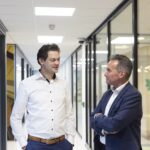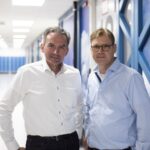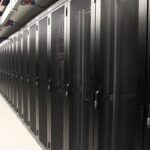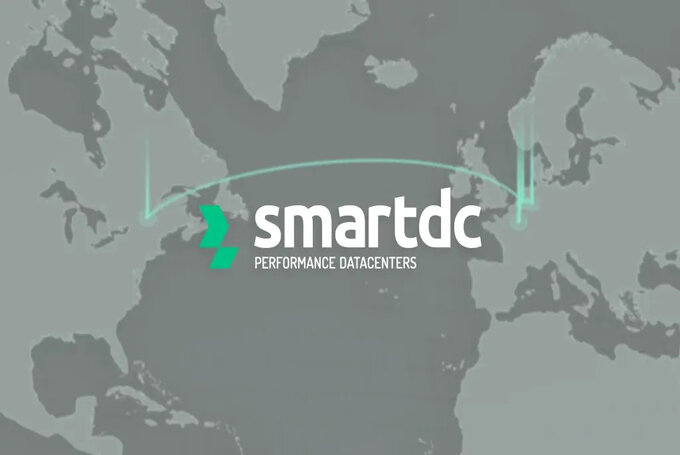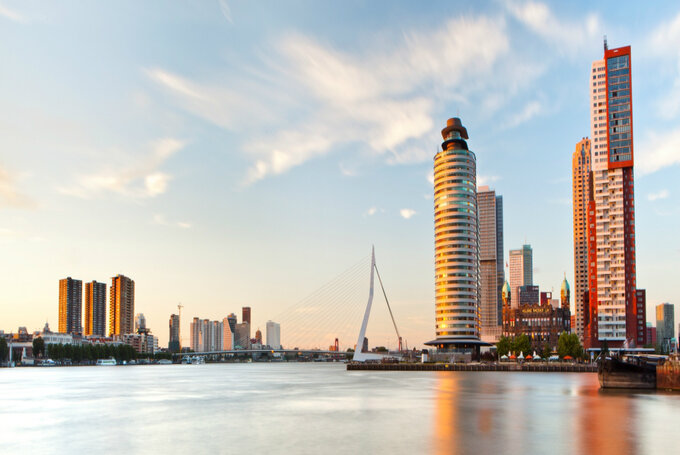Growth of the data center sector
Many companies that had their servers in-house began outsourcing them to data centers. Due to the scale and expertise of data centers, storage has become more cost-effective and energy-efficient. Other benefits of outsourcing include improved interconnectivity and higher speeds. It is expected that the demand for data center capacity will continue to rise due to further digitization.
Energy consumption of data centers in perspective
In recent years, data centers have frequently been in the media due to their increasing electricity consumption. This is partially caused by the aforementioned outsourcing, a migration of servers from companies to data centers. However, the reduced electricity usage within companies that have outsourced servers (with on-site servers being deactivated) is not measured. Overall, there is a net saving due to the efficiency of data centers.
Nevertheless, data processing consumes a significant amount of energy. Operating and cooling servers requires substantial electricity. Currently, the sector relies on sustainable energy for 90% of its needs in the Netherlands. Sustainable energy is currently a scarce resource, with the caveat that this scarcity is a short-term issue. The government’s vision is to harness the potential of the North Sea for wind energy, with current plans aiming for the development of 70 GW of wind energy. This, combined with other energy sources, means a quadrupling of electricity supply. There is ample sustainable energy available in the long term. The government’s motto is, therefore, “Prefer green here than grey elsewhere,” indicating that abundant, affordable and sustainable energy from the North Sea will become a location factor in the future.
Green electricity converted into heat
With the energy transition, the Netherlands is moving towards a scenario in 2050 where no natural gas will be used for heating buildings. The current heat demand of 432 PJ is currently largely met by gas-fired boilers. These will need to be replaced by sustainable heat sources such as the use of heat networks. By 2030, 500,000 homes should already be connected to heat networks.
Data centers can play a crucial role in this transition. A byproduct of data centers is heat. The electricity powering the servers is converted into heat. This heat can be used to heat surrounding buildings either directly or through a heat network. By utilizing waste heat from data centers, the generated power serves two purposes, resulting in direct energy saving. Currently, there are 28 projects where the waste heat from data centers is utilized for heating the built environment. Here is a practical example.
Conversation with Richard Boogaard, Managing Director Smartdc
Collaboration between Smartdc and the Van Nelle Factory
Smartdc is located in the Van Nelle Factory complex. The Van Nelle Factory is an old coffee, tea and tobacco factory in Rotterdam. The factory itself was closed at the end of the nineties and transformed into a ‘design factory’ for companies and events. In addition to Smartdc Rotterdam, the building now houses more than a hundred companies. The Van Nelle Factory is a UNESCO heritage site and therefore subject to strict rules. Opportunities for sustainability were limited due to these regulations. By using the waste heat from the Smartdc data center for heating, the Van Nelle Factory complex manages to reduce its gas consumption by about 80%.
How does it work?
The heat from the servers is used to heat water to 37 degrees Celsius. This is not enough for the cold winter months. Therefore, Smartdc has purchased three additional heat pumps to further increase the water temperature and thus heat the entire building. The Van Nelle Factory used about 1 million cubic meters of gas per year. This has now been reduced to 200,000 cubic meters, resulting in an 80% savings. In addition, Smartdc exclusively uses green energy.
In terms of CO2, Smartdc will help our partners on the complex save more than 2000 tons of CO2 equivalent (CO2eq) — a measure used to compare the actual potential for global warming relative to the emissions of specific greenhouse gases.
Are there also benefits for Smartdc?
Certainly, our data center becomes more efficient with this setup. We now use the heating system for cooling as well. This means we need less energy for cooling. As a result, our Power Usage Effectiveness (PUE) improved from 1.35 to 1.15. At the current IT load, this translates to a saving of 2.4 GWh, which is approximately equivalent to the annual consumption of 850 households. We will also reduce our fuel consumption by almost 15 percent. All of this together reduces the footprint of our own data center by more than 13 percent, reducing it from 436 tons of CO2eq to 378 tons of CO2eq.
What does ING think?
The North Sea offers the Netherlands enormous potential for offshore wind, making cheap and readily available sustainable energy a factor for future locations. While data centers do consume a significant amount of electricity, they engage in an economic activity that plays a crucial role in the digital ecosystem and, consequently, the competitive strength of the Netherlands. When we intelligently utilize the waste heat from data centers, it contributes to gas reduction, optimizes energy sources and allows for a substantial reduction in CO2 emissions. In this way, data centers are one of the pieces of the puzzle in the heat transition.
